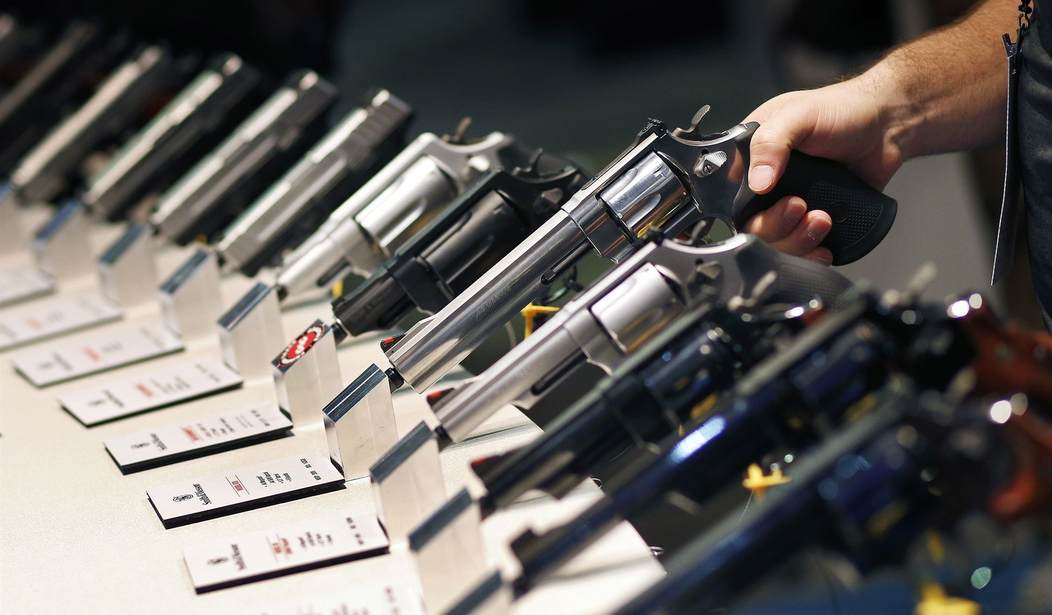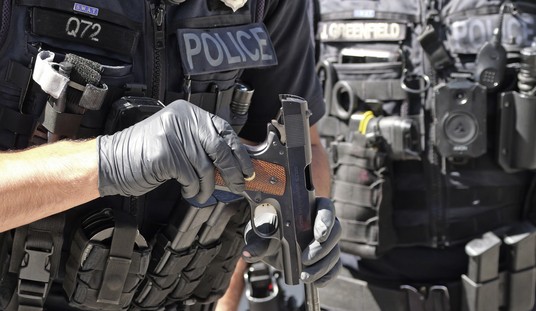When I was a kid, raised by a police officer, I looked at the FBI like they were something special. One my father’s fellow officers became one of the earliest black women to join the Bureau way back in the day, which may have had an impact in how I viewed things.
In recent years, that opinion of the FBI has more than tarnished. It has downright corroded into nothingness.
After all, let’s not forget the role the FBI played in the whole Michigan kidnap plot, apparently.
As bad as that is, though, it seems the Bureau is also using junk science to get convictions on “gun crimes.”
Late last year, a forensic firearms analyst in Wisconsin emailed a remarkable document to more than 200 of her colleagues across the country. It was a handout from an online lecture given by Jim Agar, the assistant general counsel for the FBI Crime Lab.
For years, forensic firearms analysts have claimed the ability to examine the marks on a bullet found at a crime scene and match it to the gun that fired it—to the exclusion of all other guns. It can be powerfully persuasive to juries. But over the last decade or so, some scientists have cast doubt on the claim.
Forensic firearms analysis falls into a subcategory of forensics colloquially known as “pattern matching.” In these specialties, an analyst looks at a piece of evidence from a crime scene and compares it with a piece of evidence associated with a suspect.
The most damning criticism of the field came in a 2016 report by the President’s Council of Advisers on Science and Technology, or PCAST, which found that “firearms analysis currently falls short of the criteria for foundational validity,” and that the studies the field’s practitioners often cite to support their work are poorly designed and “seriously underestimate the false positive rate.”
After decades of deferring to these forensic analysts, a handful of judges started to heed the warnings from scientists, and have put limits on what some forensic witnesses can say in court. Those decisions have sparked a defensive backlash in the forensics community, along with rebukes from law enforcement officials and prosecutors.
Agar’s document is part of that backlash. In the two-page handout, Agar instructs firearms analysts on how to circumvent judges’ restrictions on unscientific testimony. He even suggests dialogue for prosecutors and analysts to recite if challenged. Most controversially, Agar advises analysts to tell judges that any effort to restrict their testimony to claims backed by scientific research is tantamount to asking them to commit perjury.
Unfortunately, though, juries often aren’t aware of this. If the supposed experts are allowed to spout bad science as if it’s absolute fact–especially if the defense attorneys are unaware of experts who can refute such testimony–then the juries are going to take this as the gospel truth.
After all, would the FBI lie?
Of course, many of us know that yes, the FBI would lie. We’ve seen the government lie time and time again over the last two years.
Yet we’re not the people on the jury.
The problem here, of course, is that such testimony could be leveled at any of us who happen to be wrongly accused of a crime. It’s not like we don’t have guns, right? How damning would it be for an FBI expert to sit on the witness stand and claim that your gun was definitively used to murder someone because of patterns that really don’t necessarily mean much of anything?
That’s not what our tax dollars are meant to be used for.
Look, I want criminals caught and imprisoned, preferably for a long, long time. But the last thing I ever want to see is an innocent man convicted, though I know it happens far too often. Yes, everyone in prison will tell you they’re innocent, but we’ve also seen a lot of convictions overturned throughout the years as well, which means at least some of them are.
How would you feel if you were one of them?
It’s imperative that we don’t let supposed experts keep pushing bad science that may wrongfully convict people. I don’t care if they work for the FBI, CIA, ACLU, ACPCA, or the Cub Scouts.








